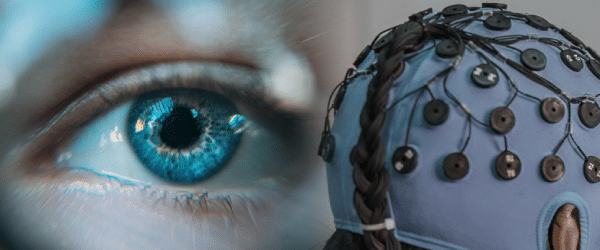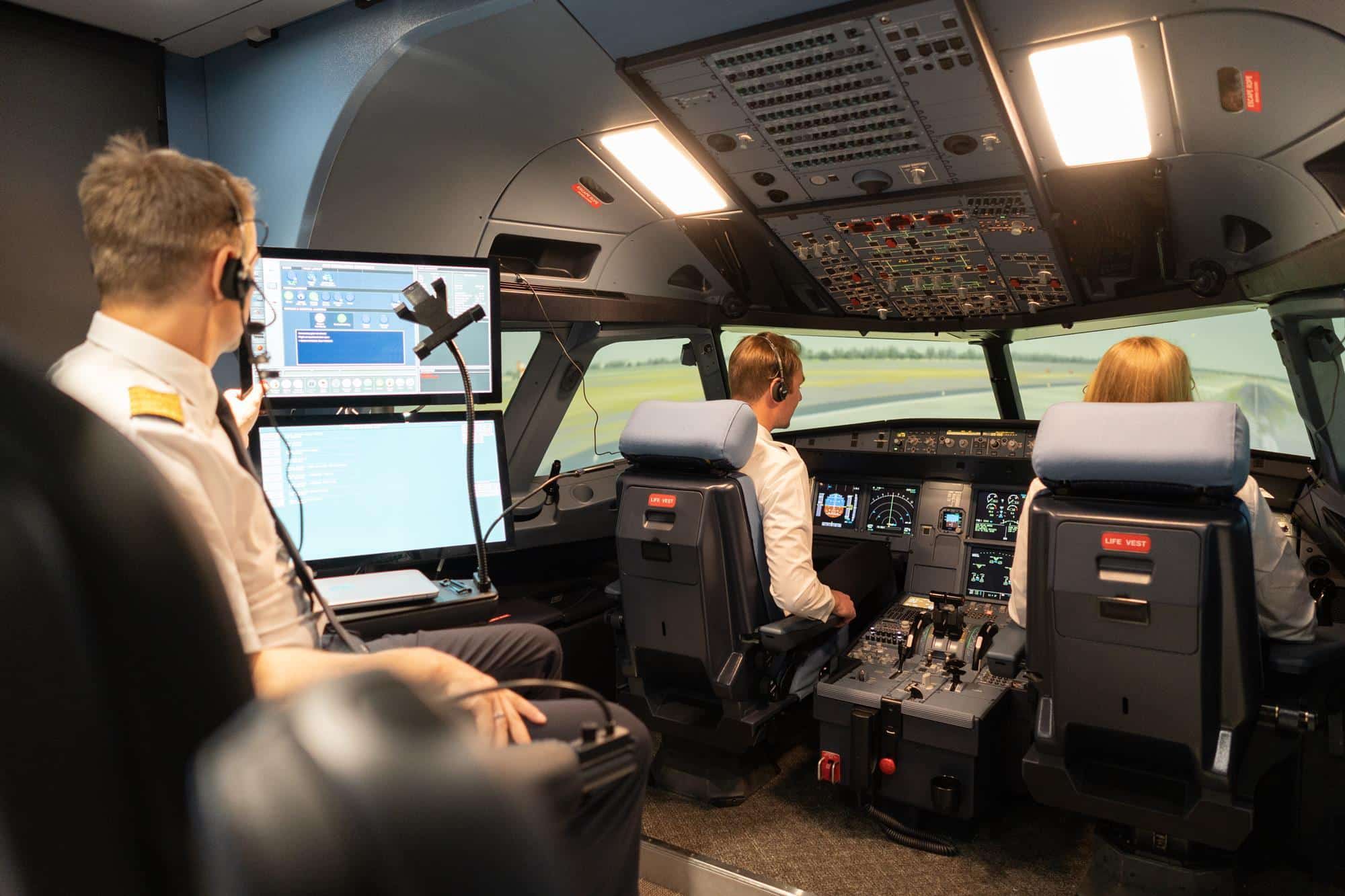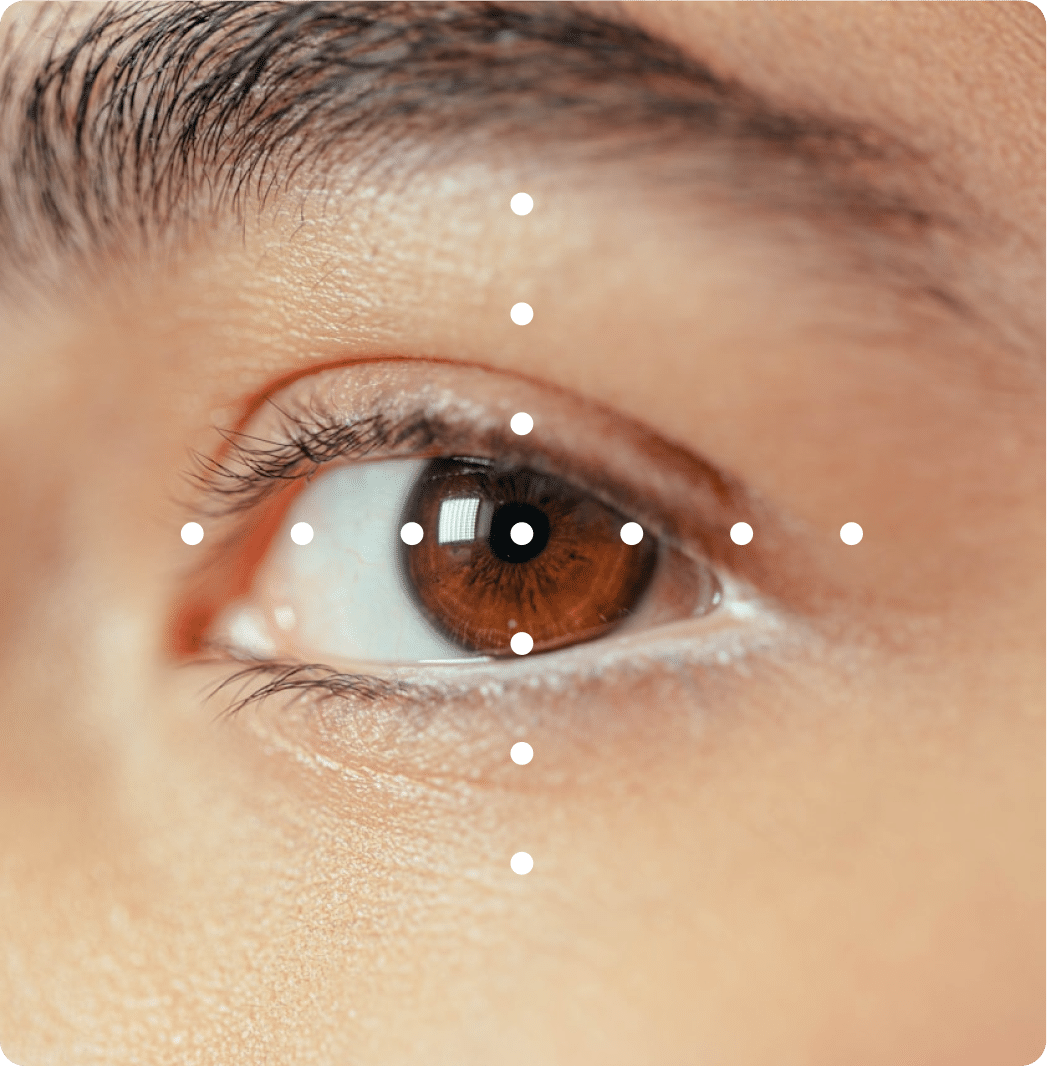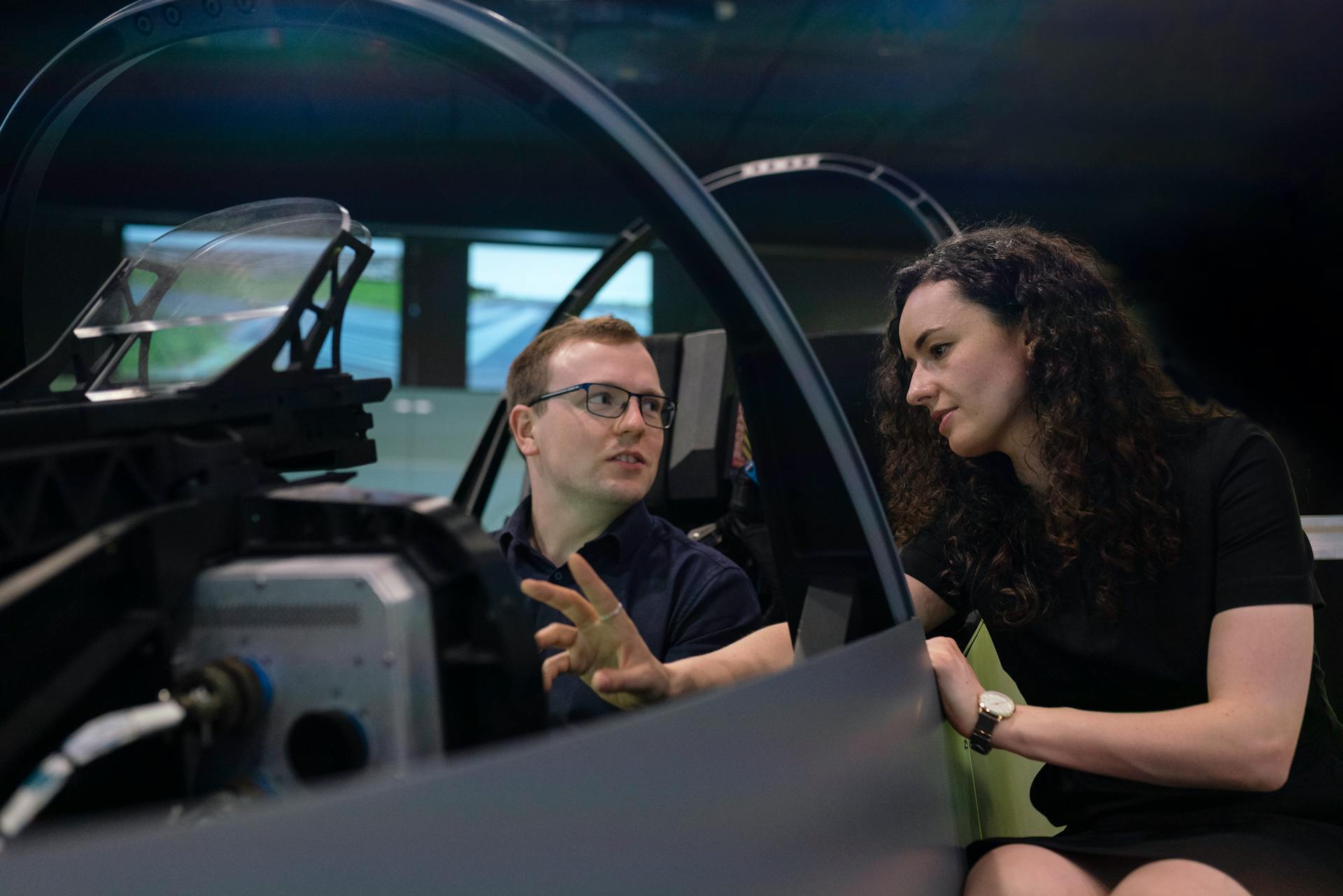Thanks for reaching out
We’re here to help with questions, support, or if want to explore how SOMA’s technology can benefit your business, we’re here to help. Just fill out the form, and our team will get back to you shortly.
Contact
hello@somareality.com07.10.24 - DI Dr. Benedikt Gollan
Healthcare: Real-Time Cognitive Monitoring for Improved Training Outcomes
As SOMAREALITY continues to push the boundaries of cognitive monitoring in healthcare our main focus is on improving training outcomes. By utilizing eye tracking we enable objective methods to monitor cognitive changes and learning progress.
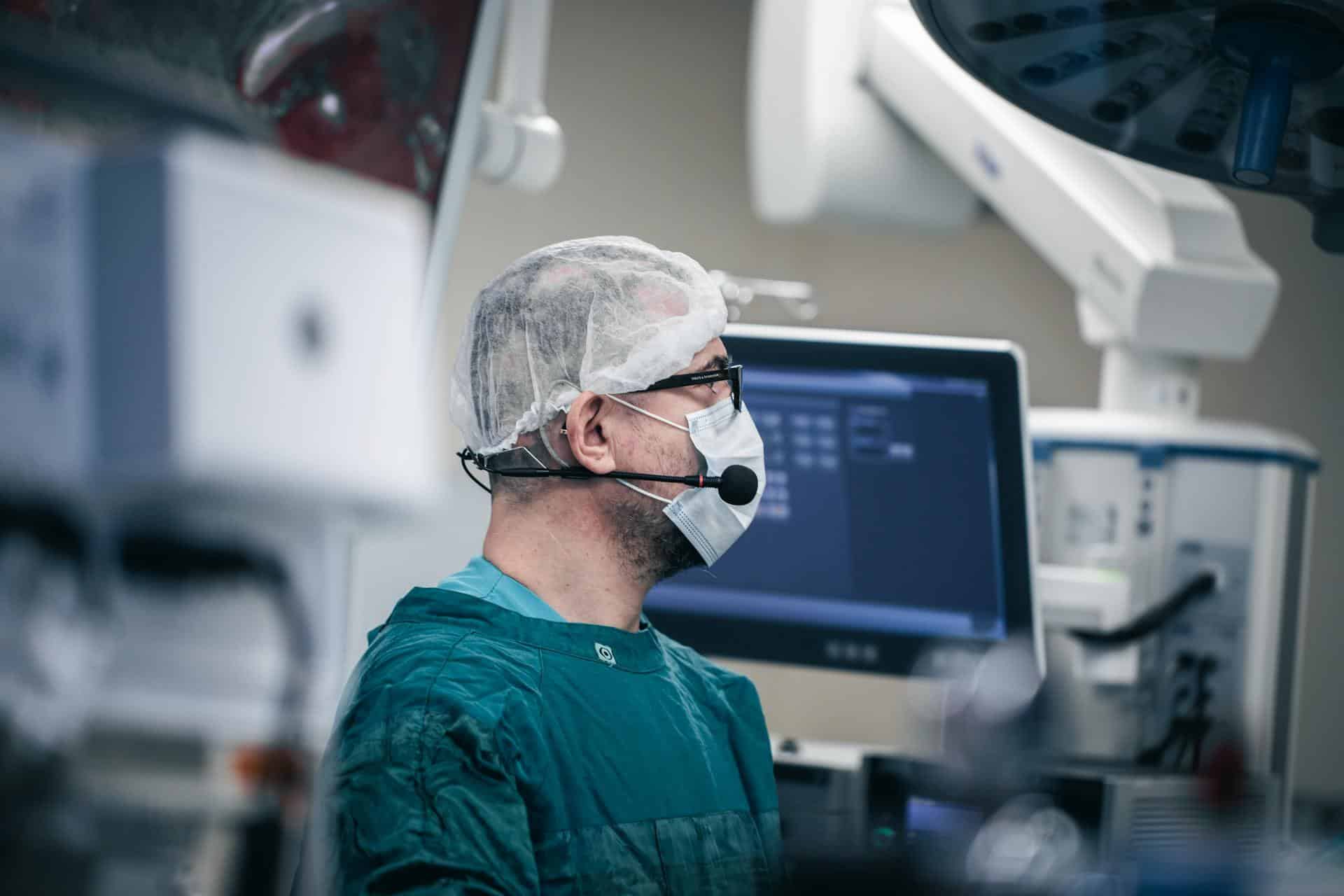
In the high-pressure world of healthcare, cognitive performance is just as important as technical skills. Medical professionals are constantly required to make quick, life-altering decisions, often in stressful environments such as emergency rooms or operating theaters. Monitoring their cognitive state is essential not only for optimizing training but also for reducing risks during critical procedures, especially in cutting-edge fields like surgical robotics.
SOMAREALITY’s advanced eye-tracking technology, combined with real-time cognitive load monitoring, cognitive fatigue insights, and conscious perception algorithms, is transforming how healthcare professionals monitor their training progress. By providing real-time data on mental workload, attention, and awareness, SOMAREALITY is paving the way for safer, more effective medical practices.
In this blog, we’ll explore how SOMAREALITY’s technology is applied in healthcare, focusing on medical training during surgery and emergencies.
Optimizing Medical Training with Eye Tracking &
Cognitive Monitoring
Medical training, particularly in emergency medicine, is characterized by high-stress situations and complex procedures. Until today, there is no solution to monitor individual training bottlenecks as well as objective learning progress. Experts show low levels of cognitive load while trainees show high cognitive load spikes which indicate difficult steps during the process. Therefore, cognitive load monitoring represents an objective method to track learning progress over time. Additionally, it helps trainers to get insights into the individual training bottlenecks of the trainees. Unmanaged cognitive load can lead to mistakes or slower reaction times, both of which can have severe consequences in real-world settings. The Center for Biomedical Research and Translational Surgery at the Medical University of Vienna is working together with SOMAREALITY to detect cognitive load levels during surgery.
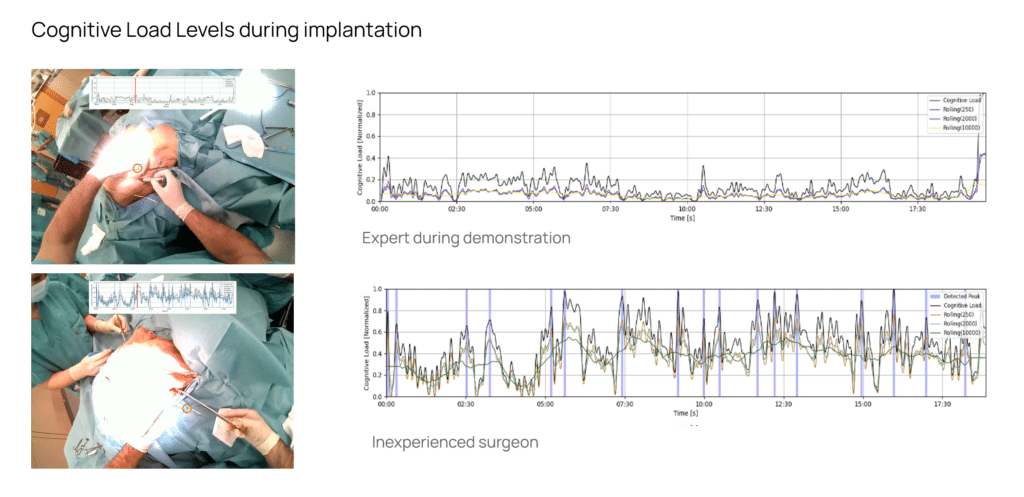
By utilizing eye-tracking technology the user not only gets insights into their cognitive state in real-time but also a point-of-view (POV) video that shows where the user was looking at. This represents a big improvement from current systems that rely on EEG technology. These systems are very sensitive to movement and do not capture the context the user operates in. By linking the cognitive state with gaze data we can now understand what information is resulting in cognitive overload or cognitive fatigue.
At SOMAREALITY we enable real-time cognitive load monitoring by tracking changes in pupil dilation, gaze patterns, and eye movements. Pupil dilation is a well-established indicator of mental strain, with larger pupils typically reflecting increased cognitive effort. By analyzing these metrics, trainers can gauge how well medical trainees are coping with the mental demands of their training.
For example, during an emergency simulation, a trainee might be required to perform multiple tasks simultaneously—monitoring patient vitals, communicating with team members, and administering treatment. If eye tracking data reveals excessive pupil dilation or shifts in visual focus away from critical information, trainers can intervene with personalized feedback to help the trainee manage their mental workload more effectively.
Cognitive Monitoring in Surgical Robotics: Reducing Risk and Enhancing Patient Outcomes
As medical technology advances, more healthcare institutions are integrating robotic systems into surgical procedures. While robotic surgery offers enhanced precision and control, it also requires the surgeon to operate in a highly focused state for extended periods. The mental and cognitive demands placed on surgeons during these procedures can be immense, and cognitive overload could lead to dangerous mistakes.

Real-Time Cognitive Load Monitoring in Surgical Robotics
SOMAREALITY’s technology is at the forefront of reducing cognitive risks in surgical robotics by providing real-time cognitive load monitoring for surgeons. As with medical trainees, the system tracks pupil dilation, gaze shifts, and visual attention to assess the surgeon’s cognitive state throughout the operation.
For instance, during a complex procedure, a surgeon might experience moments of increased cognitive strain as they focus on minute, delicate movements with the robotic instruments. If pupil dilation increases significantly or the surgeon’s visual attention begins to wander, the system can alert the team to potential cognitive overload. This information can be used to either pause the procedure or provide assistance, ensuring that the surgeon remains in an optimal mental state to continue operating with precision.
Conclusion
Eye tracking technology is revolutionizing healthcare by providing real-time insights into the cognitive performance of medical professionals. Whether it’s improving cognitive load management in medical training, enhancing visual attention and conscious perception in robotic surgery, or paving the way for continuous cognitive monitoring through smart wearables, SOMAREALITY is at the forefront of a cognitive health revolution.
By empowering healthcare professionals to better understand and manage their cognitive states, we are helping to improve patient outcomes, reduce risks, and optimize medical performance. The ability to combine this technology with digital learning tools further enables adaptive digital training environments that can scale while providing personalized feedback, ultimately reducing training time by up to 30%.
The future of healthcare will not only depend on technical skills but also on the ability to maintain cognitive resilience under pressure—and SOMAREALITY is making that future a reality.
Stay up to date with everything around SOMA
Stay informed with the latest updates and breakthroughs in eye-tracking technology.
